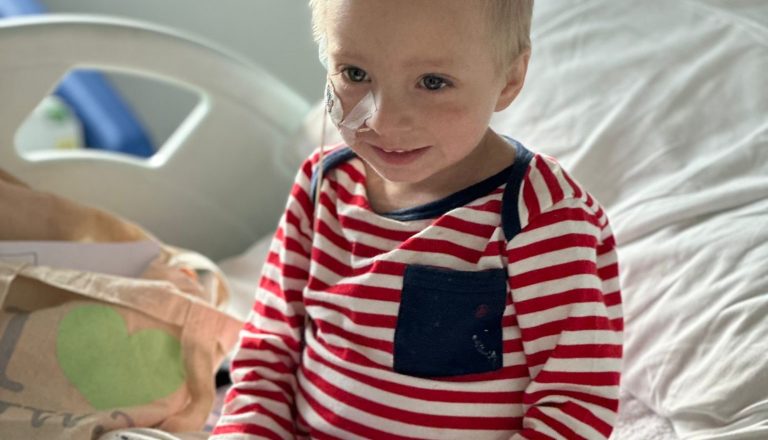In the summer of 2023, George was diagnosed with rhabdomyosarcoma (RMS), a rare and aggressive type of cancer. He was jaundiced with an obstruction in his bile duct and liver. He was only two years old. After the biopsy, the parents received the diagnosis and their son underwent three rounds of chemotherapy. After that, he was treated with Nanoknife technology, an experimental treatment that cured his cancer completely.
Cancer and Two Rare Genetic Conditions

George was seeing doctor after doctor until he was finally diagnosed. “I will never forget that moment,” said his father, Jonathan, to Cancer Research UK. “It felt like my entire world had collapsed.” That marked the beginning of a year-long marathon to help George. But after three rounds of chemotherapy, the tumor remained unchanged. Then Jonathan and his wife Rachael received more bad news. George had two extremely rare genetic conditions: Silver Russell Syndrome and Mosaic Variegated Aneuploidy (MVA) syndrome. MVA syndrome had given George a predisposition to cancer.
While George continued chemo, his parents tried to find more options. Unfortunately, most cases of RMS are diagnosed in children and teenagers, with more than half under the age of 10, according to the American Cancer Society. They spoke with pediatric liver and bile duct RMS experts, and learned about a cutting-edge new treatment called Nanoknife technology. At the time, George was staying in King’s College Hospital, who didn’t have a license to use the Nanoknife, but they got one to perform the procedure under the NHS.
“The surgeons managed to remove all the tumor and had clear margins all the way around the removed section of his liver,” said Jonathan. “This was the news we’d been hoping and praying for. From the day George was diagnosed, all we did was push and push to get him the treatment he needed. We loved that the Nanoknife was something new and ground-breaking and we felt we had some input into making it happen.”
